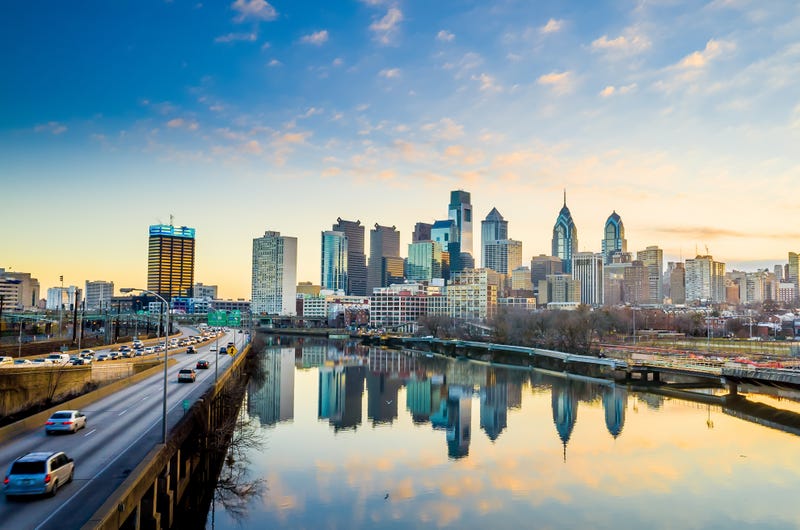
All this week, KYW Newsradio has stories of post-pandemic recovery with a series called "The State of Downtown." Listen on Nov. 16 at 7 p.m. for "Audacy Conversations: The State of Downtown."
PHILADELPHIA (KYW Newsradio) — Philadelphia ranks seventh among 26 U.S. cities in recovering from the COVID-19 shutdown, according to a study by the Center City District, which shows American cities, by and large, are recovering from the pandemic shutdown but to different degrees and at different rates of speed.
District President Paul Levy says the cities that have recovered the fastest are those that rely on visitors more than office workers. Topping the list in the degree of recovery was Nashville — 100% back to pre-pandemic levels of people in its downtown.
Close behind were San Jose, San Diego and Memphis — all cities, as Levy notes, with robust tourism. “They were hurt the most in 2020, but the decision to come back as a tourist is easier than the decision to come back as a worker,” he explained.
Levy concludes that the structure of the local economy is the biggest factor. “The more they’re in the hospitality industry, those cities are in the front of recovery,” he said.
Conversely, the cities with the slowest comebacks were focused on information technology. San Francisco has rebounded the least.
The second biggest factor is population density near jobs. People who live close to their jobs are back at higher rates. He says public safety is a concern, but not nearly to the degree that popular wisdom has it.
“People who live within two miles of their job in midtown Manhattan are back 100%. Those who live 10 miles away are back only 40%,” he detailed. “People may be afraid of their offices, but they’re not afraid of restaurants, bars and theaters.”
Levy undertook the study because of the narrative that COVID had killed the viability of cities. It was intended to counter misinformation and provide data cities can use to spur recovery.
“To me, cities are the job centers, they’re the innovation centers, they’re the opportunity centers and for people to casually talk about doom loops without looking at the facts really just annoys me,” he said.
“We’re seeing very strong signs of recovery and this sort of death of cities and doom loop spirals, I just think is nonsense. To quote Mark Twain, ‘The reports of my demise have been greatly exaggerated.’”

